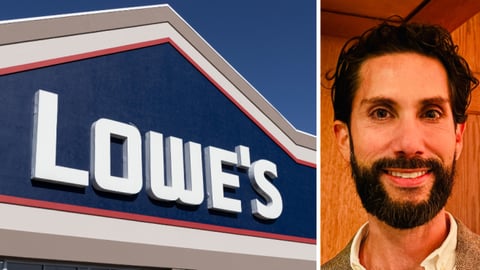3 Rules for Balancing Celebrity Endorsements With Great Customer Experience
In a world where we’re bombarded with “fake news” and influencers promoting products in glossy lifestyle photos, it seems consumers are wising up to the social and cultural influences that come from paid-for celebrity endorsements. Eighty-six percent of consumers admit that they see through influencer or blogger endorsements, and less than a quarter admitted to trusting ads on social media.
It’s hard to deny, however, that celebrity endorsements are a powerful tool for growing businesses. For online retail giant ASOS, celebrity endorsements have been key to the successful launch of the brand, with fans dedicated to emulating the style of stars like Millie Mackintosh, Kendall Jenner and Cara Delevingne. According to a research report from Marketwatch, sales will likely increase by 4% (on average) following the initial signing of a celebrity.
In fact, last year fashion retailer Boohoo spent approximately £80m on celebrity endorsements and other marketing costs, which saw a 48% jump in sales. Celebrities also have a huge presence on social media, which can offer a higher engagement rate than branded ads. Cristiano Ronaldo for example, has a massive 200 million followers on Instagram.
However, rather than being swayed by celebrities and influencers promoting products, consumers are now recognizing the value of substance over style, when it comes to choosing their favorite online brands. The Honest Company launched in 2012 by Jessica Alba is just one great example of a celebrity-owned brand that has built a brand that goes above style alone, growing into a successful multi-billion-dollar brand.
So, what can brands do to ensure they are delivering substance to customers every single time?
1. The importance of order fulfillment
A fundamental element in ensuring that your brand maintains a positive image is the fulfillment of orders. As customer expectations continue to rise, the speed and the condition the product arrives in will be crucial to impress the customer and to leave a positive lasting impression.
By partnering with a distribution provider, emerging brands can ensure they are being cost-efficient while keeping up with continually narrowing delivery timeframes. Temporary facilities such as pop-up distribution centers can be rapidly deployed and de-leverage fixed costs of a year-round distribution center. This allows brands to rapidly respond to increased sales through celebrity promotions, or quickly serve a specific geographical area when needed.
2. Representing the celebrity in quality packaging
The first experience a consumer has with a brand is with the physical representation. Therefore, packaging plays an important role in impressing the customer. If the packaging the consumer receives doesn’t match the online image, then the trust between seller and buyer can immediately begin to crumble.
For example, if a company is represented by a celebrity who promotes sustainability, yet the product uses excessive packaging, then there’s a clear disparity in the celebrity/brand relationship. Ensuring the quality of the packaging reflects the celebrity’s personal brand is vital. For many online retailers, bespoke or personalized packaging options are an effective way of making a good first impression and keeping up appearances.
3. Showing customers you care
Customer care should be at the forefront of building any successful brand. Customers will often directly associate the celebrity figure with the customer service provided, and so it’s key that authenticity is echoed throughout the entire shopping experience.
A top priority for any brand should be responding to customer feedback, queries and needs. Brands can ensure they are doing this effectively in the following ways:
- Put in place an effective care management team.
- Adopt technologies including chatbots and SMS services.
- Make use of automating processes to provide more efficient and personalized care.
Social media management should also be considered, especially in the case of celebrity-owned and celebrity-endorsed brands. Unhappy customers will often go directly to a celebrity’s social media page to make a complaint. To ensure that issues are promptly resolved, brands must effectively track mentions across all platforms, be responsive to complaints and provide the appropriate aftercare to customers.
These techniques should act as a seamless extension of the brand and will ensure that a company is catering to an individual’s needs.
Trust is everything when it comes to building and maintaining a successful brand. If the experience doesn’t match up to the perception created by the celebrity, then the brand will open itself up to serious backlash.
When choosing a celebrity to partner with, retailers must ensure that they remain authentic to the brands’ roots and deliver an experience that delights. After all, the bright lights of celebrity endorsements can and do fade over time, but retailers are in it for the long-haul.
Patrick Lowe is area VP of business management at PFS.





